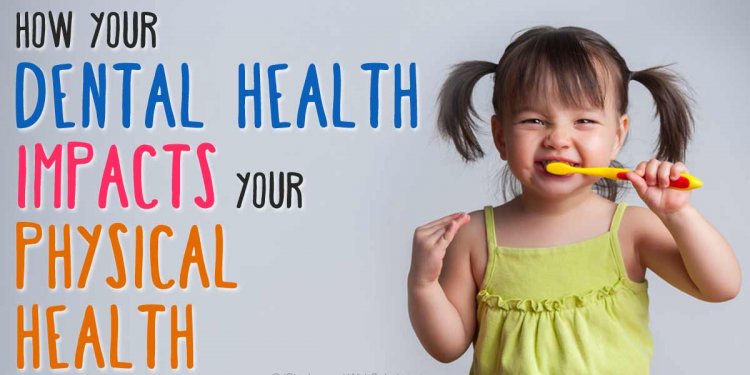
Oral Health and overall Health
The compartmentalization involved in viewing the mouth separately from the rest of the body must cease because oral health affects general health by causing considerable pain and suffering and by changing what people eat, their speech and their quality of life and well-being. Oral health also has an effect on other chronic diseases (1). Because of the failure to tackle social and material determinants and incorporate oral health into general health promotion, millions suffer intractable toothache and poor quality of life and end up with few teeth.
Health policies should be reoriented to incorporate oral health using sociodental approaches to assessing needs and the common risk factor approach for health promotion (1, 2). Oral diseases are the most common of the chronic diseases and are important public health problems because of their prevalence, their impact on individuals and society, and the expense of their treatment. The determinants of oral diseases are known — they are the risk factors common to a number of chronic diseases: diet and dirt (hygiene), smoking, alcohol, risky behaviours causing injuries, and stress — and effective public health methods are available to prevent oral diseases.
In some countries, oral diseases are the fourth most expensive diseases to treat. Treating caries, estimated at US$ 3513 per 1000 children, would exceed the total health budget for children of most low-income countries (3). The situation for adults in developing countries is worse, as they suffer from the accumulation of untreated oral diseases. There are few efficient dental care systems to cope with their problems, and where there are, the cost is beyond most people’s means. Millions with untreated caries have cavities and suppuration, yet planners continue to overlook oral diseases, despite their significant impact on cost and quality of life. This oversight will lead to more decay and expensive, ineffective clinical interventions.
Oral health affects people physically and psychologically and influences how they grow, enjoy life, look, speak, chew, taste food and socialize, as well as their feelings of social well-being (4). Severe caries detracts from children’s quality of life: they experience pain, discomfort, disfigurement, acute and chronic infections, and eating and sleep disruption as well as higher risk of hospitalization, high treatment costs and loss of school days with the consequently diminished ability to learn. Caries affects nutrition, growth and weight gain. Children of three years of age with nursing caries weighed about 1 kg less than control children (5) because toothache and infection alter eating and sleeping habits, dietary intake and metabolic processes. Disturbed sleep affects glucosteroid production. In addition, there is suppression of haemoglobin from depressed erythrocyte production.
Ninety per cent of pre-adolescents reported an impact related to oral health (6). Prevalence of dental pain was found to be about 33% among Brazilian teenagers, of whom 9% reported distressing, excruciating pain (7). Toothache leads to school absence, which is a ready indicator of children’s health. In the USA, where caries is lower than elsewhere, visits or dental problems accounted for 117 000 hours of school lost per 100 000 children (8). Because most school dental services work mainly during school hours, loss of schooling among the poor, who have higher caries rates, is high.
In Thailand, 74% of 35–44-yearolds had daily performances affected by their oral state: 46% reported their emotional stability was affected (9). Dental problems that cause chewing to be painful affect intake of dietary fibre and some nutrient-rich foods; consequently, serum levels of beta carotene, folate and vitamin C were significantly lower in those with poorer oral status (10).
Contemporary concepts of health suggest that oral health should be defined in general physical, psychological and social well-being terms in relation to oral status. Cohen & Jago consider the greatest contribution of dentistry is to improve quality of life (11). Disruptions in physical, psychological and social functioning are therefore important in assessing oral health. Traditional measures use mainly clinical indices, though there are alternatives using measures of oral health-related quality of life in sociodental approaches to assessing need (12).
Chronic diseases such as obesity, diabetes and caries are increasing in developing countries, with the implication that quality of life related to oral health, as well as general quality of life, may deteriorate. Because oral and other chronic diseases have determinants in common, more emphasis should be on the common risk factor approach. The key concept underlying future oral health strategies is integration with this approach, a major benefit being the focus on improving health conditions in general for the whole population and for groups at high risk, thereby reducing social inequities.
By integrating oral health into strategies for promoting general health and by assessing oral needs in sociodental ways, health planners can greatly enhance both general and oral health.

















